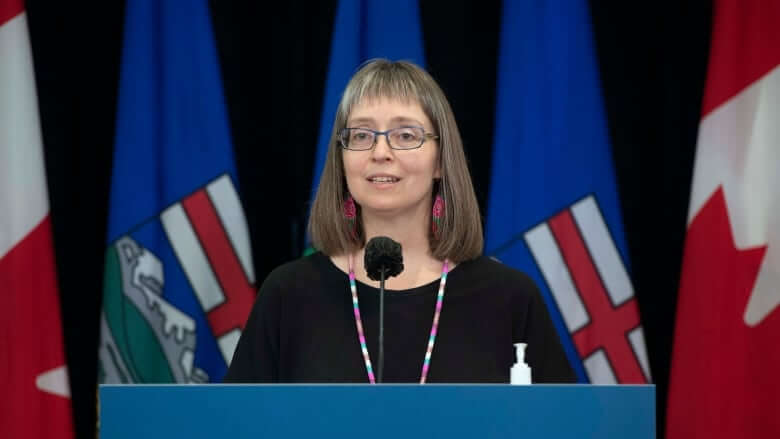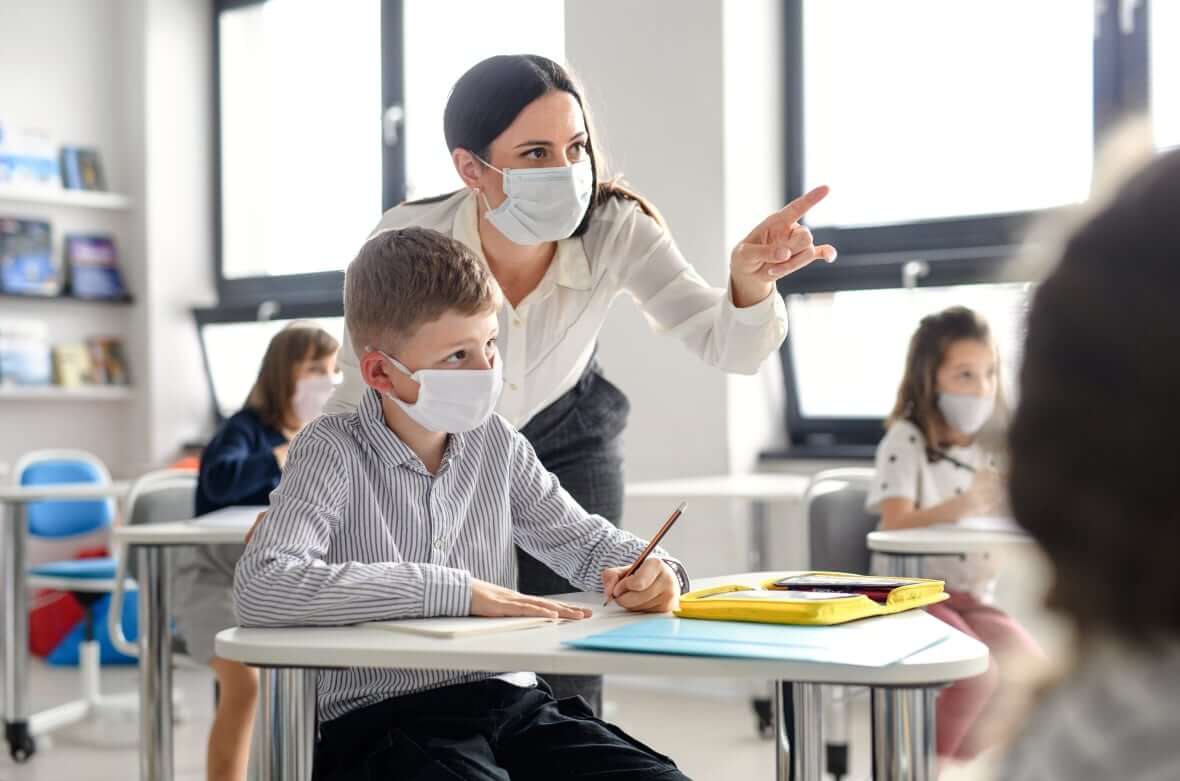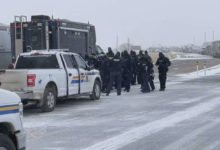Alberta to remove most COVID-19 isolation, testing requirements by mid-August

Albertans who test positive for COVID-19 will no longer be required to enter isolation starting in less than three weeks, the province’s chief medical officer of health said Wednesday.
COVID-19 spreading faster in Alberta than during peak of 3rd wave
While a recent rise in COVID-19 cases has caused some anxiety, increasing vaccination rates are limiting the threat of severe outcomes and strains on the health-care system, Dr. Deena Hinshaw said during a news conference.
As a result, the province will start making COVID-19 protocols similar to those of the flu and other communicable diseases.
“When we first heard of COVID-19, we knew little of the virus and we had no treatments and no vaccines.… Today, we are in a very different place,” said Hinshaw.
Changes to certain rules and protocols will take place in two phases and be implemented over a period of a few weeks.
Under Phase 1, starting Thursday, anyone with COVID-19 symptoms or who receives a positive test result must isolate, but quarantine for their close contacts will be recommended and not mandatory, a government release says.
Quarantine could be required in some “high-risk settings or for outbreak management,” Hinshaw said.
Anyone who tests positive will be notified, but contact tracers will no longer notify close contacts of exposure. That responsibility will fall to those who test positive.
Contact tracers will keep investigating cases at high-risk settings, such as acute and continuing care facilities.
Outbreak management will also focus on high-risk settings, including “high-risk workplaces.” Community outbreaks with a surge of severe outcomes will “be addressed as needed,” the release says.
In Phase 1, asymptomatic testing of contacts will no longer be recommended, but testing will remain available to people showing symptoms.
“This will help reduce wait times and ensure timely results in the coming months,” said Hinshaw.
Mask mandates remain in effect when inside acute- and continuing-care facilities, or when riding in public transit, taxis or ride-share vehicles.
“Over the next two weeks, we will closely monitor these changes and adapt as needed, to give more time to vaccinate Albertans before the remaining changes begin on August 16.
These upcoming changes in mid-August will be more significant.
For example, provincial masking orders on transit, taxis and ride shares will be lifted on that day.
Universal masking will not be required in schools once students return, Hinshaw said, but masks can be used as a temporary outbreak intervention in response to respiratory outbreaks.
Phase 2 slated for August
The most significant changes will happen Aug. 16, in Phase 2, when isolation following a positive test will no longer be required.
Isolation in that situation, however, will be “strongly recommended,” the release says. People with symptoms of any respiratory infection should still stay home until symptoms are gone.
Mask mandates will be lifted, although some may be required in acute- or continuing-care facilities.

Isolation hotels and quarantine support will no longer be available.
Testing will be available to people with symptoms when needed for patient care decisions, although Hinshaw noted those with mild symptoms won’t need to be tested.
Testing will be available through assessment centres until Aug. 31, and through primary care facilities such as doctors offices after that. Anyone with severe illness who needs urgent or emergency care can be tested in acute care facilities and hospitals.
The government said public health will focus on investigating severe outcomes that require hospitalization, as well as any COVID-19 deaths.
The province reported 194 new cases of COVID-19 on Wednesday — mostly people who have not received the COVID-19 vaccine, said Hinshaw.
There were 84 people in hospital, including 18 in intensive care.
About 7,100 tests were conducted Tuesday. Alberta’s test-positivity rate was 2.9 per cent.
Of Albertans aged 12 and up, 75.6 per cent have received one dose of a COVID-19 vaccine; 64.3 per cent have received both doses, according to the news release.








Redes Sociais - Comentários